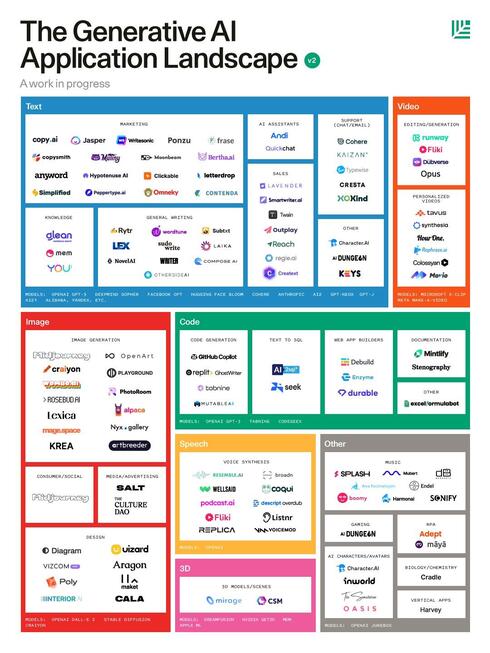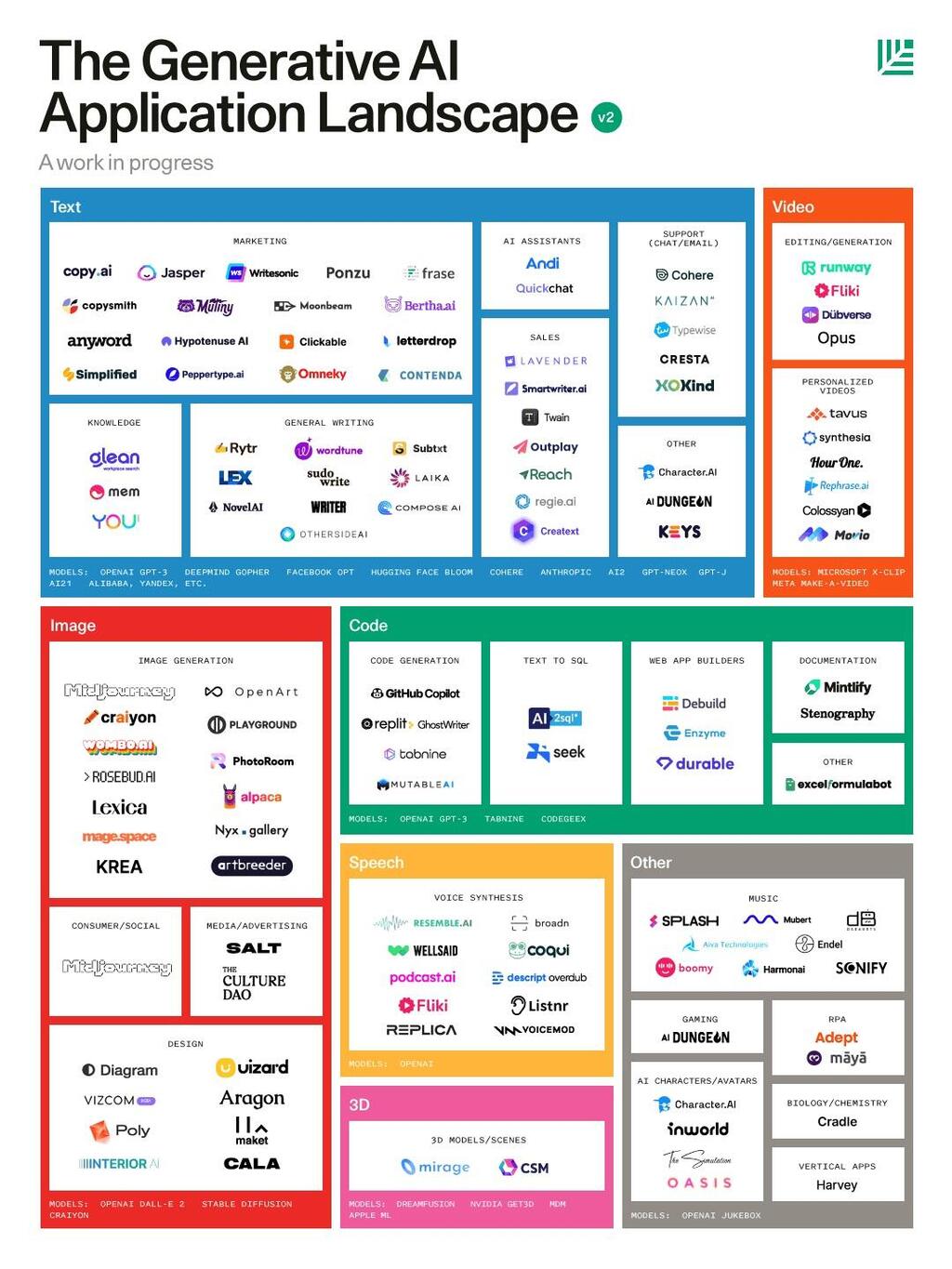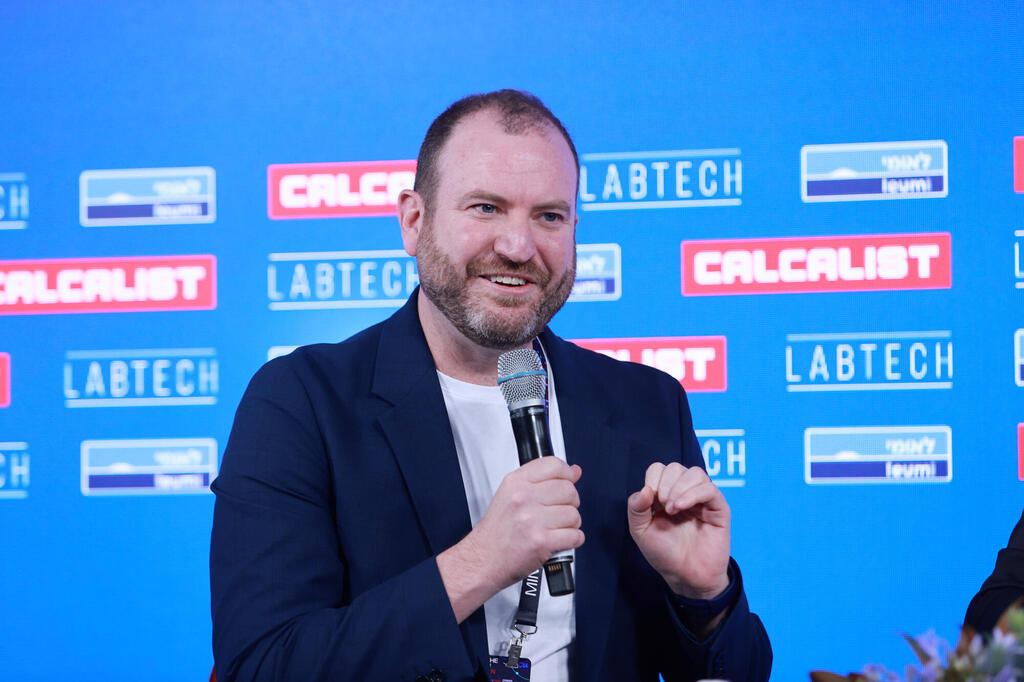
Mapping the pioneering Israeli Generative AI startups
The Generative AI wave is here and Remagine Ventures Managing Partner Eze Vidra helps break down the local startups already making noise in the budding space
In the last six months we’ve seen a Cambrian explosion of generative AI technologies come to market. For consumers experimenting with this tech for the first time, it feels like magic.
Generative AI (or creative AI) is a set of deep learning technologies that enable users to create content based on text or visual prompts. You might be familiar with GPT-3 (text generation) or Dall-e 2 (text to image generation), but the actual landscape is much bigger. There are cheap, fast and semi reliable models today that enable users to generate videos, 3D objects and even games, with AI. According to a recent paper by Sequoia, by 2025 generative AI tech will be able to write whole scientific papers.
Investors have taken notice. Most recently, Stability AI, an open source generative AI startup raised a $101 million Seed round to democratize content creation, and Jasper AI, a generative text tool for businesses raised a $125 million Series A at a $1.5 billion valuation. And then there’s OpenAI which is currently raising another billion from Microsoft. OpenAI is the leading non-profit in this space led by Sam Altman, the former head of Y Combinator. Sequoia issued the first generative AI landscape and Andreessen Horowitz came up with their own landscape for AI in gaming and 3D modeling.
The large tech companies are also working on initiatives in this space. Microsoft is the main backer of OpenAI, Meta recently launched a teaser for ‘Make a Video’, a generative video product that is able to create short clips based on a text prompt. Google is working on Imagen Video, which the company says will be capable of producing 1280×768 videos at 24 frames per second from a written prompt.
Generative AI in Israel
Perhaps not surprisingly, Israel has a strong cluster of Generative AI startups despite the relatively early stage of this space.
Here are some of the top examples, in alphabetical order:
AI21 Labs - the NLP startup co-founded by Prof. Yoav Shoam developed natural language models that compete with GPT-3. The tech is used today in a number of consumer products, mainly Wordtune, to help users with grammar on emails and to summarize text.
Anyword - a copy generator for businesses. From AI generated emails to social posts, Anyword uses predictive analytics to not only create the text, but also optimize for what will work.
Art AI - started as an AI generated art engine selling printed canvases and later moved on to digital collectible NFT art generated with their own creative AI engine.
Astria - still a bit under the radar, Astria is the company behind Strmr. Using Stable Diffusion, the company is able to train the model based on the user’s profile picture, enabling high quality visual outputs.
Bria.ai - combines stock photography with AI and enables users to make changes, to make stock photography more personalized and diverse. Just announced a partnership with Getty Images to infuse stock photography with AI.
Deepdub - AI dubbing technology, uses synthetic voices to enable actors in TV and film speak any language, in any accent, with their own original voice.
D-ID - the company recently entered the generative AI space transforming photos into video presenters and bringing portraits to life.
HourOne - a synthetic media startup, HourOne can create video from text, without the need for a camera. The video can be based on real human characters and can be edited as easily as writing an email. (Disclosure: I’m an investor and board member via Remagine Ventures).
Lightricks - the Israeli unicorn that became popular for its photo editing apps, was quick to launch Photoleap for Android, a text to image generation app.
Munch - focus on repurposing of content. From long form video to short form (i.e Youtube to TikTok) using NLP to extract the most engaging parts on the video automatically and create automatic overlays on short-form clips based on information extracted from the source video.
Tabnine - focused on generating text to code and using AI for code compilation, changing the meaning of no-code possibilities.
Wombo - started by Israeli founders in the U.S., Wombo is an AI entertainment company democratizing creativity. Their free app enables to ‘animate’ pictures or generate new visuals with text and has gained over 85 million downloads.
It’s worth mentioning that many of the AI researchers in the large tech companies working on this space are Israeli, which means that great talent is being incubated.
Challenges in Generative AI
Despite the buzz, big questions remain about the future of the generative AI space. To name a few:
1. IP - Can startups build sustainable businesses based on another company’s API? Some examples in GPT-3 suggest it’s possible, but time will tell if every one of the generative AI categories becomes commoditised.
2. Ethics - What are the ethical implications and risks of having generative AI open to everyone? OpenAI censors certain prompts while Stability AI believes in radical freedom and is already responsible for AI generated porn.
3. Copyright - to train generative AI algorithms, a lot of data is needed. The training data used in today’s algorithms is likely to be scraped from the web and could be deemed copyright infringement.
4. Fake news - futurist Roei Tzezana showed how easy it is to create fake news of a fake landing on the moon using GPT-3 and Dall-E. How will we tell the difference as technology evolves?
5. Automation and job loss - will these technologies render copywriters and designers useless? Will stock photographers be out of jobs?
Despite these concerns, AI advancements can also down the line create new opportunities. It has the potential to lower the barrier for people to become artists and be part of the creator economy. They open the field to more creators and are likely to augment, rather than replace humans. The Generative AI wave is already here, and I expect to continue to see rapid developments in this space.
While there are no doubt risks associated with unleashing this kind of technology in the wild without supervision (Reddit already closed several forums that used Stable Diffusion offensively) I'm excited to see where this creative AI revolution will take us. As an investor in the creative tech space, I could see big opportunities in using this kind of tech to create new business models and populate the metaverse.
Eze Vidra is the co-founder and Managing Partner at Remagine Ventures. Vidra frequently writes about Creative AI on VC Cafe.
First published: 11:14, 27.10.22















